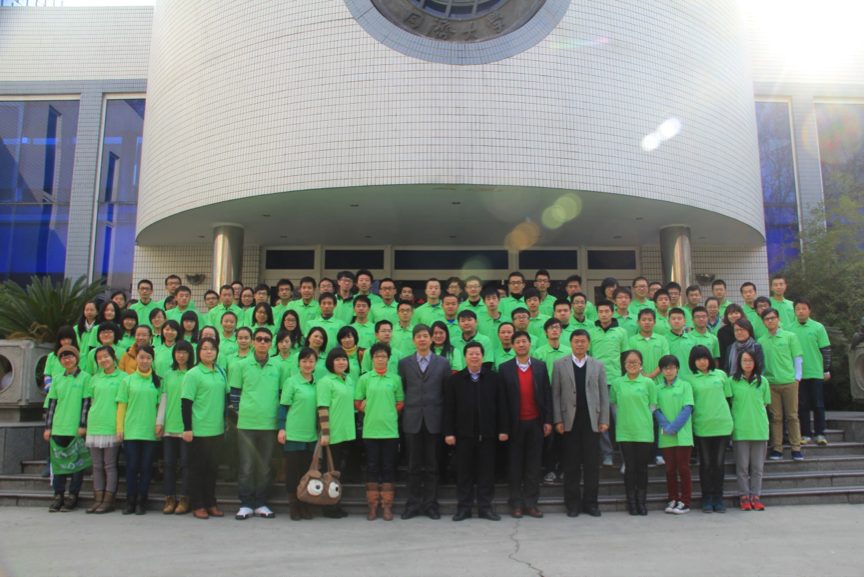1000 Environment-Friendly Youth Ambassadors Action-Innovation Capacity Training on Response to Climate Change was held on 21-22 December 2013 in Tongji University, Shanghai. More than 160 students from five universities in Shanghai, namely Tongji University, Jiaotong University, University of Shanghai for Science and Technology, Shanghai Open University and Shanghai University participated in the training.

1000 Environment-Friendly Youth Ambassadors Action program was initiated by the Center for Environmental Education and Communication (CEEC), Ministry of Environmental Protection of the People’s Republic of China. The training program focuses on students’ capacity building and action training towards tackling climate change issues in China and beyond.
In the opening ceremony, HONG Shaoxian, Director of CEEC introduced the history of the 1000 Environment-Friendly Youth Ambassadors Action program. Meanwhile he called upon Environment-Friendly Youth Ambassadors to participate more in environmental protection activities. Mr. LI Shudong, Director of Shanghai Education on Environment Protection Center, Prof. LI Fengting, Vice Dean of College of Environmental Science and Engineering, UNEP-Tongji Institute of Environment for Sustainable Development, Tongji University and Dr. ZHAO Dan, representative from Johnson Controls Inc., gave opening remarks to the audience in the two-day training program.
Ms. MAI Le Chang, honorary consultant of CEEC, gave a lecture on Hong Kong’s youth involvement experiences on environmental protection and climate change mitigation activities. Ms. LI Yan, officer from National Center for Climate Change Strategy and International Cooperation (NCSC), gave an analysis on the effects of climate change and introduced domestic reactions to climate change issues. She encouraged the Environment-Friendly Youth Ambassadors to participate in more climate change mitigation activities.
The training program this year was elaborately designed to cultivate students’ capabilities on leadership, communication and cooperation. Students thus can carry out more effective environmental protection and propaganda activities. In the training program, students participated actively in-group discussions in the lectures. After the training, they expressed their willingness to carry out various environmental protection activities and become real Environment-Friendly Youth Ambassadors.